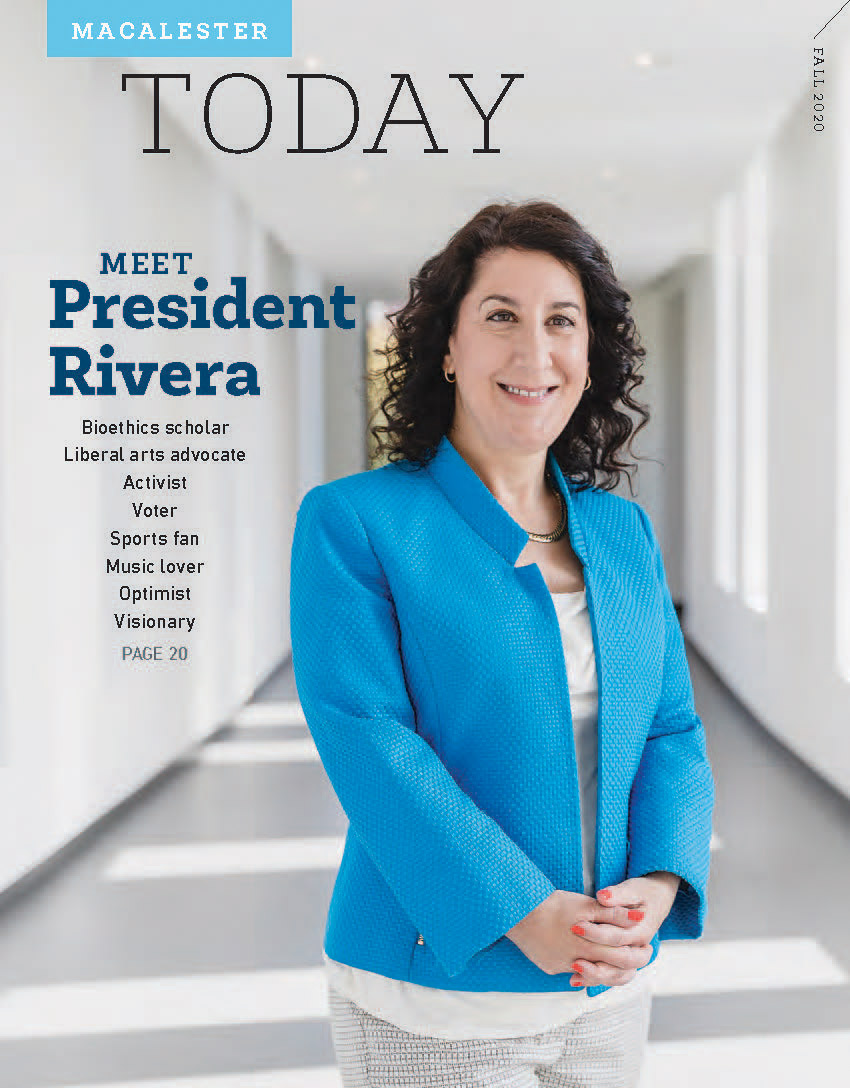
How do we learn, remember, and think? Students in “Cognitive Psychology,” taught by Professor Ariel James, are exploring these and other cognitive phenomena this fall. When the pandemic hit, James was collecting data about people’s eye movement records, part of her research into language processing. She told us more about what she’s found, and provided a window into the cognitive “things we do all the time”—almost, we might say, without thinking.
What’s the definition of cognitive psychology?
Cognitive psychology is about how we think—how we represent and process information. The main topics include memory, perception, attention, but also more complex things like language, problem-solving, and decision-making.
What does your research focus on?
I measure individual differences in language processing. For example, some people just read faster in general—they read every word faster. I’m more interested in how speed depends on how complex the sentence is. Person A might breeze through a tricky sentence. Person B might generally breeze through sentences, but get confused at a tricky part and go back to re-read. Is there something that predicts whether you are going to be like Person A or Person B? When people come into the lab, they read sentences one word at a time and I measure how long they spend in different parts of sentences. I test their memory, vocabulary, attention, speed of perceptual processing, and then I look for correlations between those scores and reading times.
What have you found in your research?
Something that came out of my research is not so much about how language processing works but more about how measurement works. If you test a person one day and then bring them in again a week later, is their performance similar? These are things that correlational psychologists who give people personality or intelligence tests need to know about their tests, but it’s not as common to take experimental effects like eye movements or reaction times and treat them in that same way. I’m looking for evidence of these reliable individual differences as a way to build more complexity into the tests so I can ask deeper language questions.
How do people learn, remember, and think?
One of the main lessons of cognitive psychology is that we’re talking about things we do all the time, but we have very poor intuition about them. We might have a sense of how we read, or how we study best, or what we’re going to remember later, but we don’t actually have very good awareness of these processes that happen really quickly and maybe in a way that’s not that intuitive.
What’s an example?
There are studies about learning on purpose—like studying for a test. Students are brought into the lab to study a long text that they will be tested on later. They are either given a choice of how to study, or they’re assigned: either re-read the material or test themselves on it, perhaps by writing down as much as they remember, or by doing a practice test. Student typically pick re-reading if given the choice, or predict that re-reading will work well. Counter to what the students predict, when you test them later, the people who made themselves practice retrieving (like doing a practice test) do better than people who just re-read. There are different explanations for why that might be, but doing any sort of deep processing where you really have to work with the information is better for storing that information.
What are obstacles to learning, remembering, or thinking?
Our memories are not great. We don’t just look at things and then store them exactly the way that they happened. Our brains work very hard to make things make sense. Sometimes that makes it so that we don’t represent the world accurately. Perception, for example, can be exploited with different optical illusions. When we look at stuff, we don’t look at all of it equally. We focus on things we think are meaningful.
A demonstration we often do in class is looking at an array of pennies. All of them are slightly off—maybe the date is on the wrong side or Lincoln’s profile faces left—except one. What’s meaningful is not which way Lincoln is facing or where E Pluribus Unum is located, but rather, do I have one cent to make change? That’s the level that you’re thinking about it. Just because you have used pennies countless times doesn’t mean you’ve perfectly encoded everything about what a penny looks like. Our minds are efficient. You don’t need to memorize all the things about all the things. That’s not how you get through the day. You get through the day by acting on things that actually matter.
By Julie Hessler ’85 / Illustration by Richard Mia
October 21 2020
Back to top





